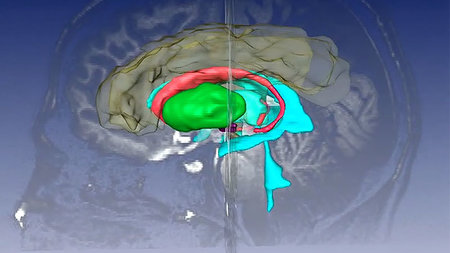Hippocampus
The hippocampus is a key structure for episodic memory and spatial navigation. A fundamental step in hippocampus research was the discovery of place cells, which fire whenever an animal traverses a certain location known as the place field (O'Keefe and Nadel, 1978). At rest, place cells exhibit brief periods of fast oscillations termed sharp wave-ripples. During these events, place cell activity shows sequential patterns called forward replay and reverse replay: time-compressed, and sometimes time-reversed, reproductions of previously experienced sequences. Spatial experiences stored in the hippocampus can therefore be recalled at will during behavior.
Our modeling work focuses on understanding how these replay patterns are learned and used for high-level cognitive processes such as decision-making and model-based reinforcement learning.

Associated projects
EU project "Spatial Cognition", Future Emerging Technologies: Neuro-bio-inspired systems (2013-2016).
Selected Publications
Lorenz Goenner, Julien Vitay, and Fred H. Hamker (2017).
Predictive Place-Cell Sequences for Goal-Finding Emerge from Goal Memory and the Cognitive Map: A Computational Model.
Frontiers in Computational Neuroscience 11:84
doi:10.3389/fncom.2017.00084





